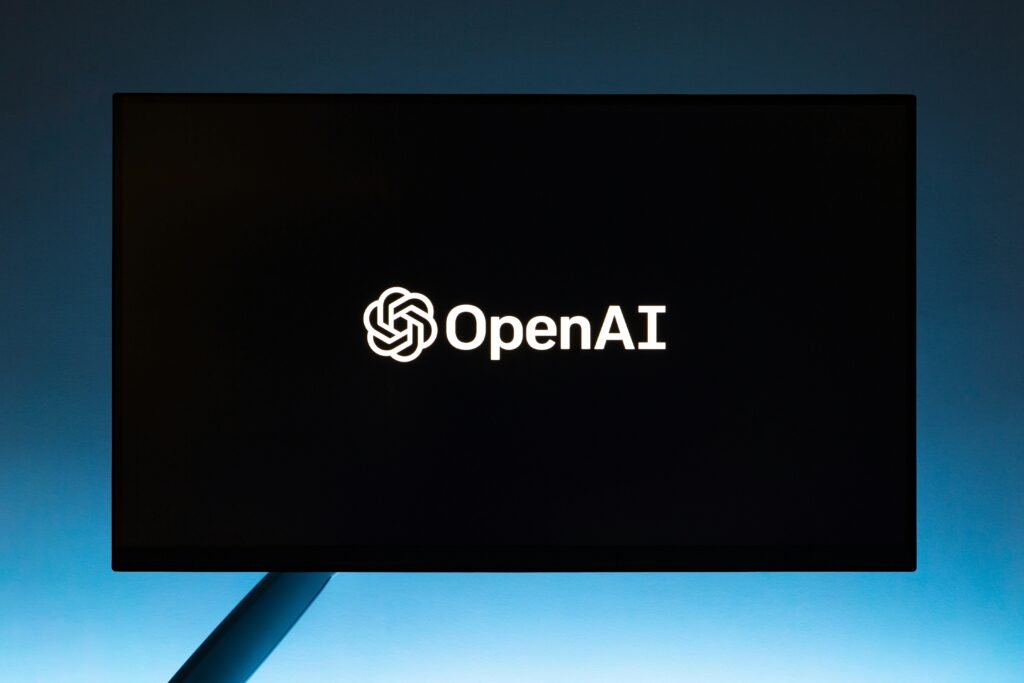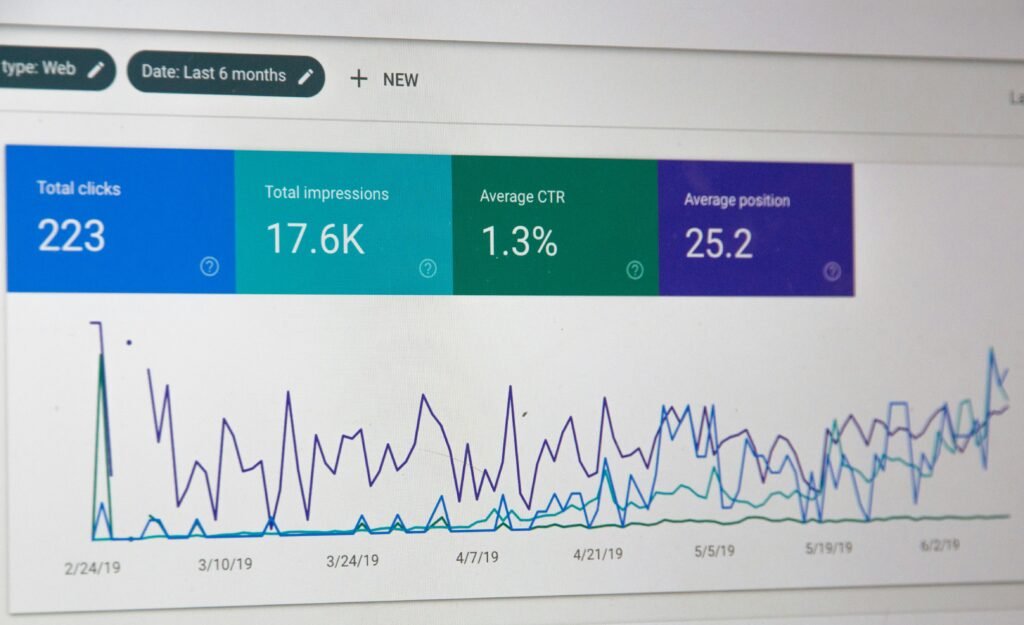
Introduction to AI Technology
Artificial Intelligence (AI) refers to the simulation of human intelligence processes by machines, particularly computer systems. These processes include learning, reasoning, and self-correction. The inception of AI dates back to the 1950s when pioneers like Alan Turing proposed that machines could be designed to exhibit intelligent behavior. Initially, AI was rooted in cognitive science and theoretical mechanics, where researchers focused on problem-solving and symbolic reasoning.
Over the decades, AI technology has undergone significant evolution, transitioning from abstract ideas into functional applications that permeate various sectors, including healthcare, finance, education, and transportation. The development of machine learning, where algorithms learn from and make predictions or decisions based on data, has been pivotal in this transformation. Additionally, the advent of deep learning, which utilizes neural networks structured similarly to the human brain, has further enhanced AI capabilities, enabling more sophisticated data processing and analysis.
In today’s technological landscape, the importance of AI is indisputable. It plays a crucial role in improving efficiency, enhancing productivity, and facilitating data-driven decision-making. For instance, in healthcare, AI aids in patient diagnostics and personalized medicine, while in finance, it is used to detect fraudulent transactions and optimize trading strategies. The continuous advancements in AI technology have also led to its integration into everyday life, from virtual assistants like Siri and Alexa assisting with daily tasks to smart home devices optimizing energy use.
As we navigate through the 21st century, the presence and influence of AI are only expected to grow, raising questions about its implications on ethical considerations, employment, and societal norms. Understanding AI’s history and its current applications is essential in grasping its significance in the modern world.
Common Applications of AI in Everyday Life
Artificial Intelligence (AI) has permeated various aspects of daily life, transforming how individuals interact with technology. One of the most familiar implementations of AI is through virtual assistants such as Amazon’s Alexa, Google Assistant, and Apple’s Siri. These AI-driven services simplify daily tasks by facilitating voice-activated control of devices, managing schedules, and providing instant answers to inquiries, thus enhancing user convenience.
Furthermore, AI’s influence extends to the entertainment industry, particularly through recommendation systems employed by streaming services like Netflix and Spotify. These platforms use sophisticated algorithms to analyze user preferences, behaviors, and viewing histories to suggest content tailored to individual tastes. According to recent studies, nearly 80% of users engage with recommended content, illustrating the profound impact of AI-driven algorithms on content consumption.
Smart home devices also exemplify AI’s growing presence in everyday life. Products such as smart thermostats, security cameras, and automated lighting systems utilize AI to learn from user habits and optimize home environments. This not only elevates comfort levels but also contributes to energy efficiency. Research indicates that households equipped with smart home technology commonly experience a reduction in energy consumption by up to 30%, showcasing the practical benefits of AI within domestic settings.
Social media platforms serve as another realm where AI is fundamentally shaping interaction. From content personalization on news feeds to advanced filtering of inappropriate posts, the underlying AI technologies are crucial in enhancing user experience. A significant percentage of users—approximately 70%—report that they find social media algorithms helpful in discovering content that resonates with their interests.
Incorporating AI into daily routines is becoming increasingly prevalent, as the technology continually evolves and adapts to meet the needs of the modern user. This expansion showcases not only the versatility of AI but also its integral role in streamlining and enriching everyday life.
The Impact of AI on Work and Productivity
The advent of artificial intelligence (AI) has significantly transformed the workplace landscape, leading to enhanced productivity across various sectors. AI technologies have enabled organizations to automate routine tasks, thereby allowing employees to focus on more strategic and creative aspects of their work. This shift is not merely a trend; it represents a fundamental change in how work is conducted, facilitating greater efficiency and effectiveness.
One of the primary areas where AI has made a considerable impact is in project management. Platforms that incorporate AI algorithms can analyze project timelines, resource allocation, and team dynamics in real-time. Tools like Asana and Microsoft Project now integrate AI features that help in predicting project completion dates and detecting potential bottlenecks, which in turn leads to improved planning and execution.
Customer service is another domain experiencing a significant transformation due to AI. Chatbots powered by natural language processing are being deployed to handle routine inquiries, allowing human agents to dedicate their time to more complex issues. This not only accelerates response times but also enhances customer satisfaction. Companies are also utilizing AI-driven analytics to gain insights into customer behavior, helping them tailor their services more effectively.
Data analysis tools have similarly evolved alongside the rise of AI. Programs that leverage machine learning can sift through large datasets to uncover patterns and insights that would be nearly impossible for humans to detect alone. This capability enhances decision-making processes, leading to improved business outcomes. Consequently, this shift raises essential questions about the future of job roles. While some routine positions may decline due to automation, new roles requiring advanced skills in AI system management and analysis are emerging, balancing the workforce dynamics.
AI in Healthcare: Revolutionizing Patient Care
The integration of artificial intelligence (AI) in healthcare is transforming the way patient care is delivered. AI technologies are now utilized in various facets of the medical industry, from diagnostics to treatment plans, enhancing both patient outcomes and operational efficiency. One of the significant applications of AI in healthcare is in diagnostic tools. Machine learning algorithms analyze medical images, such as X-rays and MRIs, allowing for earlier detection of diseases like cancer. This advanced analysis improves accuracy compared to traditional methods, thus enabling healthcare professionals to make informed decisions more swiftly.
Moreover, AI plays a crucial role in personalized medicine. By examining a patient’s genetic information and other health data, AI systems can suggest tailored treatments that are more effective and have fewer side effects compared to conventional approaches. For instance, AI algorithms can predict how a patient might respond to a specific medication based on their genetic profile, leading to optimized therapy regimens. This shift towards more personalized treatments reflects a significant move away from the “one size fits all” model of healthcare, demonstrating the profound impact of AI on patient care.
Additionally, robotic-assisted surgeries have emerged as a remarkable application of AI in healthcare. These robots, when guided by experienced surgeons, can perform complex procedures with enhanced precision. They often lead to shorter recovery times, reduced surgical risk, and minimal scarring for patients. The collaboration between human expertise and AI capabilities results in better overall surgical outcomes, showing how AI not only assists medical professionals but also enriches the patient experience.
In conclusion, the rise of AI technology in healthcare signifies a pivotal evolution in patient care. Through innovative tools for diagnostics, personalized medicine, and robotic surgeries, AI is enhancing accuracy, efficiency, and patient satisfaction, shaping a promising future for the healthcare industry.
Education and AI: Enhancing Learning Experiences
The integration of artificial intelligence (AI) into education is revolutionizing the way learning experiences are delivered and personalized. AI-driven technologies have emerged as powerful tools that not only support educators but also empower students by tailoring educational content to individual needs. One significant application of AI in education is personalized learning platforms. These platforms utilize algorithms to analyze students’ learning styles, strengths, and areas for improvement, thereby allowing for customized educational pathways. This approach ensures that learners, whether they are advanced or struggling, receive the appropriate resources and challenges suited to their unique requirements.
Another critical area where AI is making strides is in the development of intelligent tutoring systems. These systems function as virtual tutors, offering students real-time feedback and guidance as they engage with the learning material. By employing natural language processing and machine learning, these AI-based tutors can adapt their instructional strategies based on a student’s progress and comprehension, making learning more effective. For example, students can practice math problems or language exercises and receive instant corrections, allowing for a more interactive and engaging experience.
Moreover, AI is proving to be an invaluable asset in streamlining administrative tasks within educational institutions. Administrative tools powered by AI help educators manage schedules, grade assignments, and monitor student performance effortlessly. This not only reduces the administrative burden on teachers but also allows more time for direct interaction with students. As a result, educators can focus on fostering a conducive learning environment, enhance student engagement, and support overall academic achievement.
By bridging gaps in education and providing additional support to both learners and educators, AI technologies are paving the way for a more efficient and effective educational system. The potential of AI in enhancing educational experiences is significant, and its continued integration into various educational frameworks holds great promise for future generations.
Ethical Considerations and Challenges of AI
The increasing integration of artificial intelligence (AI) technology into everyday life raises significant ethical considerations that merit careful discussion. One of the most pressing concerns is privacy. As AI systems become more omnipresent through applications ranging from voice assistants to recommendation algorithms, vast amounts of personal data are collected and analyzed. This reliance on data can lead to the erosion of individual privacy rights, as users may often be unaware of how their information is being used, stored, or shared. The challenge lies in balancing technological advancement with the safeguarding of personal data, ensuring that individuals retain control over their own information.
Another critical aspect of AI technology is the potential for bias inherent in algorithms. Machine learning models, trained on historical data, can inadvertently perpetuate societal biases. For example, facial recognition software has demonstrated discrepancies in accuracy across different demographics, leading to questions about fairness and discrimination. Such biases not only undermine the credibility of AI applications but also amplify existing inequalities, necessitating a thorough examination of the datasets used in training models. It is crucial for stakeholders to address these biases proactively, striving for fairness and inclusivity in AI systems.
Finally, job displacement is a significant concern related to the rise of AI. As automation expands, there exists a tangible fear that AI will replace jobs, particularly in sectors where routine tasks are prevalent. While AI technology can enhance productivity and create new opportunities, it can also lead to workforce displacement, prompting discussions about the need for retraining programs and adapting education systems to prepare individuals for a future dominated by technology. The focus should be on managing this transition ethically, ensuring that human workers are not left behind in the wake of rapid technological progress.
Future Trends in AI Development
As artificial intelligence technology continues to evolve, its influence on everyday life is becoming increasingly pronounced. From autonomous vehicles to innovative environmental sustainability solutions, AI is poised to transform various facets of our society. One of the most significant trends is the rise of autonomous vehicles. Companies across the globe are investing heavily in the development of self-driving cars. These vehicles leverage advanced AI algorithms and data analytics to navigate complex environments, promising to enhance road safety, reduce traffic congestion, and lower carbon emissions. The integration of AI in transportation indicates a significant shift toward smarter and more efficient mobility solutions.
In addition to transportation, AI is playing a pivotal role in promoting environmental sustainability. Emerging AI applications are enabling more efficient resource management systems. For instance, AI-driven technologies can optimize energy consumption in smart homes and buildings, enhancing energy efficiency while minimizing waste. Furthermore, AI tools are being developed to analyze environmental data, thereby aiding in wildlife conservation, climate change research, and pollution reduction efforts. The integration of AI in tackling environmental challenges shows promise for a more sustainable future.
Economically, the impact of AI is also expected to be profound. As AI systems become more ubiquitous, they are likely to reshape job markets and industries. The automation of routine tasks through AI could lead to increased productivity and economic growth, but it may also pose challenges related to job displacement. Consequently, a focus on reskilling and workforce adaptation will be necessary to ensure that individuals are equipped to thrive in a future dominated by AI-enhanced environments. As we continue to witness AI’s transformation of daily life, it will be essential to navigate these changes thoughtfully, balancing innovation with societal expectations.
How to Embrace AI in Daily Life
As artificial intelligence (AI) technology continues to evolve, integrating it into daily life has become increasingly accessible. One of the most straightforward ways to embrace AI is by utilizing AI-powered tools that can enhance efficiency in everyday tasks. For instance, smart home devices, such as virtual assistants, can manage household chores by setting reminders, controlling lighting, and even adjusting thermostats, all through simple voice commands. This integration not only streamlines daily routines but also optimizes energy consumption, leading to a more sustainable lifestyle.
Additionally, AI applications can be leveraged to manage workloads effectively. Tools like AI-driven project management software can analyze productivity patterns and provide insights to improve time management. By utilizing these algorithms, individuals can prioritize tasks based on urgency and importance, resulting in increased output and reduced stress levels. Scheduling applications powered by AI can also automatically allocate time blocks for work, leisure, and personal development, ensuring a balanced life.
Moreover, AI has the potential to transform how we acquire new skills. Online learning platforms equipped with AI can personalize content to meet individual learning styles, making the learning process more enjoyable and efficient. Users can access tailored resources, receive instant feedback, and even simulate real-world scenarios to practice newly learned skills. This adaptability allows learners to progress at their own pace, turning daunting subjects into manageable lessons.
Incorporating AI technology into daily life is not merely about convenience but also about enhancing productivity and enriching personal growth. By embracing various AI tools, individuals can unlock new levels of efficiency in their daily tasks, better manage their workloads, and continually expand their knowledge. The key lies in discovering which AI solutions best fit one’s lifestyle and objectives.
Conclusion: The Ongoing Journey with AI
In recent years, artificial intelligence (AI) technology has significantly permeated various aspects of our daily lives, influencing how we communicate, work, and even think. From voice-activated assistants to complex algorithms that enhance our online experiences, AI has become an integral part of the modern world. This blog post has examined the multifaceted implications of AI’s integration into our everyday routines and highlighted its ongoing evolution. Notably, the rise of AI technology serves to augment human capabilities rather than replace them, fostering a unique synergy between humans and machines.
We explored the various applications of AI, including its transformative impact on sectors such as healthcare, education, and business, among others. AI-driven tools not only streamline processes but also deliver personalized experiences that can improve overall efficiency and effectiveness. As consumers, we engage with AI every day, often without even realizing it. This unrecognized familiarity underscores the necessity of understanding the technology that shapes our interactions and decisions.
Looking ahead, the future of AI presents both remarkable opportunities and challenges. With advancements in deep learning and machine learning, we can anticipate heightened capabilities that will further merge AI with our daily lives. Developing a critical understanding of these technologies will empower us to navigate potential ethical implications and societal impacts. As AI continues to evolve, staying informed becomes essential, enabling us to embrace the positive changes it heralds while remaining aware of the responsibilities that accompany its advancements.
The journey with AI is ongoing, and as we collectively explore its possibilities, we must engage in open dialogue and thoughtful consideration of how this technology shapes our future. Both optimism and skepticism play crucial roles as we proceed with this dynamic integration in our lives.





2 thoughts on “The Rise of AI Technology in Daily Life: How Much Are We Using It Now?”